Why Do Politicians Lie?
Posted by Ram Kumar Shrestha on November 12, 2012
By Bob Edgar
TED and The Huffington Post are excited to bring you TEDWeekends, a curated weekend program that introduces a powerful “idea worth spreading” every Friday, anchored in an exceptional TEDTalk. This week’s TEDTalk is accompanied by an original blog post from the featured speaker, along with new op-eds, thoughts and responses from the HuffPost community. Watch the talk above, read the blog post and tell us your thoughts below. Become part of the conversation!
The aftermath of a political season marked by an unprecedented torrent of negative advertising, much of it deceptive if not flatly false, is the perfect time for a discussion of lies and liars in the public square.
Sadly, there is no shortage of either.
But after more than three decades spent in and around public life and public officials — as a member of Congress, the leader of a religious organization, and now as CEO of a non-profit “citizens lobby” — I’m convinced that politicians are no more dishonest than the rest of us.
In public life as in private, we can and should tolerate some kinds of lies. President Clinton was caught lying and suffered mightily for it; but in the end the country decided — wisely I believe — that those failings were really none of our business. We overlook smaller public deceits every day — the faked politeness between members of Congress whom we know can scarcely stand to look at each other, for example — because we understand that government can’t function without civility, however phony it might be.
Still, because we entrust so much to them, Americans deserve and should demand high standards from our public servants.
So how do we get them?
Pamela Meyer’s insights on identifying lies and liars are helpful but certainly not foolproof. And however sophisticated and accurate such lie-detecting capabilities might one day become, it’s not reasonable to expect that everyone will understand or employ them, or even agree on when they should be applied.
As Meyer notes, lies acquire their power when they encounter people willing to believe them. And in a country as large and diverse as ours, there’ll always be folks willing, even eager, to believe just about anything.
That means we need a different approach. Luckily, the structure of one already is in place.
America’s founders tried to build honesty into our system of government by infusing it with a sort of healthy cynicism. Understanding that everyone lies at least some of the time, they created three independent branches of government and gave each the authority to keep an eye on the others.
In the 225 years since the Constitution was written, we’ve written hundreds of other safeguards against dishonesty in public life into the statute books. We have bribery laws, conflict of interest laws and disclosure laws for public officials and candidates. And in the modern era, a conglomeration of citizen organizations, like Common Cause, have come along to serve as non-government, independent watchdogs on public life.
The lies continue and the liars persist of course, that’s human nature. So there is always more work to do.
Before going any further here, I should interject that pretty much everyone I’ve ever encountered in politics, liberal, moderate, or conservative, Republican, Democrat or independent, got into it out of an honest desire to do something good for their country, their state or their community. But to run and win, you need money, and candidates learn quickly that folks who’re able to provide it almost always want something in return. Sometimes an elected official can deliver what a donor wants in good conscience because it dovetails with the official’s sense of the public interest. But issues quickly come along that force politicians into uncomfortable choices — choices between helping donors and doing what they know is right. And when the donors involved have given lot of money, or promise to use a lot of money against you unless you deliver, the temptation to go along becomes powerful. And that’s where the lies, the dangerous lies, begin.
So let’s attack the lies by attacking the money that drives them, by following the example set by our founding fathers and building more safeguards into our system.
One thing we can do quickly is add more transparency to our politics by toughening disclosure requirements so that no individual or group can anonymously pump large sums of money into our elections, and through it acquire secret IOUs from our elected officials. Sunlight, Justice Brandeis told us, is the best disinfectant.
Over the long term, we need to get around the Supreme Court’s ruling in Citizens United and other cases — erroneous in my view — that money is equivalent to speech and that limits on how much of it can be spent on political ads violate the Constitution’s guarantees of free speech.
The court’s decision will stand until we the people change the Constitution to make it clear that money isn’t speech and that in the context of political campaigns and elections spending must be subject to reasonable limits.
I know that writing such an amendment will be challenging; getting it passed by Congress and ratified by the states will be even harder. But if we want to do something about all the lies that have come our way during this political year and all the corrupting money behind them, we need to think of money not as speech but as an amplifier for speech. We need to understand that if the volume of one candidate’s speech — or that of his/her supporters — is turned up too high, the candidate is likely to be corrupted and the free speech of other candidates will be stifled.
And when that happens, our democracy is diminished.
Comment on the post: Lie has no power, however; liars getting more power everywhere in practical life. Only good liar can become successful politician and good businessman and journalists and many people are around them. This creates confusion on spiritual world, this creates confusion on belief sometimes. We small liars supporting big liars
Read the Article at HuffingtonPost


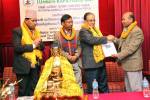



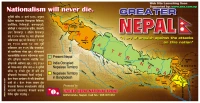




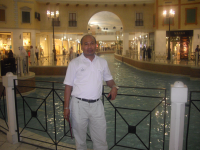





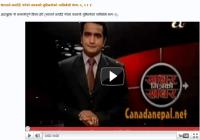













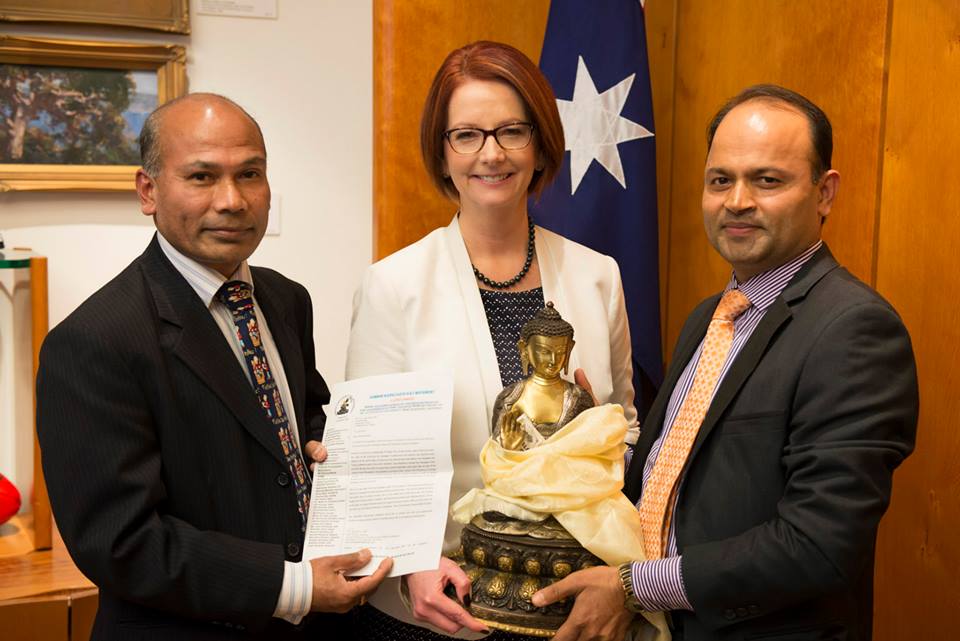



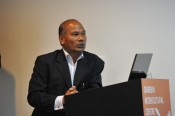
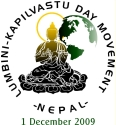













Leave a comment